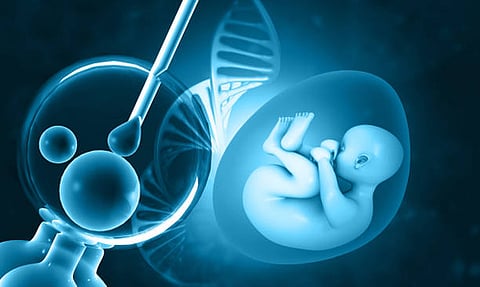

BENGALURU: With declining fertility and delayed pregnancies driving demand for assisted reproductive technologies (ART), IISc researchers are working on new solutions to improve IVF success rates.
Current IVF success rates remain at just 30-40%, highlighting the need for technological advancements. While fertility clinics are working on improving procedures, researchers from IISc’s Department of Mechanical Engineering have developed SpOvum Technologies, a startup aimed at making ART more precise. The company was founded by IISc researchers Santosh Bhargav and Ramnath Babu, who were working under faculty member GK Ananthasuresh in the Department of Mechanical Engineering.
A key challenge in IVF is the fertilisation procedure itself. Currently, embryologists use Intracytoplasmic Sperm Injection (ICSI), a technique that requires manually injecting a single sperm into an egg using a glass micropipette. However, this method is nearly 30 years old.
SpOvum has developed ROBO-ICSI, a gripper-based technique that stabilises the egg cell using a robotic hand while sperm injection takes place. This approach reduces the risk of harm to the egg and simplifies the process.
The company is also working on automated systems to select the best sperm and embryos using computer-aided semen analysis (CASA) and quantitative embryo assessment techniques.
AI is also transforming IVF by reducing human subjectivity in embryo selection. AI can analyse time-lapse videos of developing embryos, identify crucial morphological features, and assist in selecting the best one for implantation.
“Studies show that AI systems perform on par with senior embryologists,” said Keshav Malhotra, vice-chairman of Embryology at the Indian Society of Assisted Reproduction. AI also helps assess egg and sperm quality and can detect rare but serious errors, such as sample mix-ups.
IISc researchers are also studying the fundamental biology of IVF. Srimonta Gayen’s lab at the Department of Developmental Biology and Genetics is investigating epigenetic differences between naturally conceived and IVF embryos.